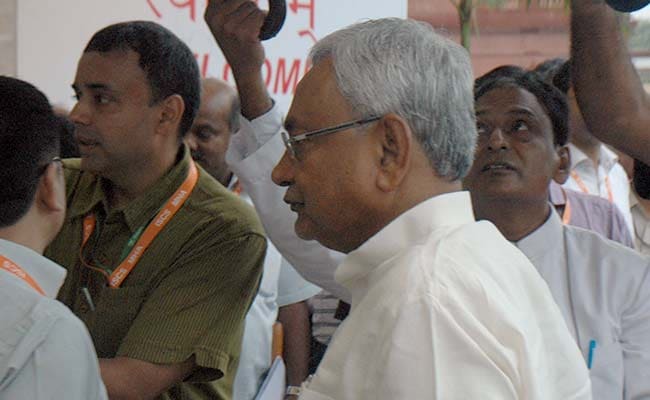
With the Centre indicted by the Supreme Court for wrongly orchestrating the removal of Congress governments in both Uttarakhand and Arunachal Pradesh, several chief ministers used a weekend meeting with Prime Minister Narendra Modi to ask that his government respect and promote the cooperative federalism that he pledges repeatedly. The Inter-State Council session, held on Saturday in Delhi, brought the PM face-to-face with long-time political opponents like Delhi Chief Minister Arvind Kejriwal and Nitish Kumar, the Chief Minister of Bihar. It was Mr Kumar who delivered a headline-making request for the abolition - or, at the very least, a huge overhaul- of the post of Governors, who, the opposition alleges, work at the Centre's behest in undermining non-BJP governments by seizing flimsy excuses for the Centre to govern states directly through President's Rule.
Here are 10 big quotes from the speech given by Mr Kumar:
On appointment and removal of Governor, the State Government is of the opinion that firstly, existing federal democratic structure of the country does not warrant continuance of the gubernatorial post. However, if it is not possible to do away with it, then our opinion is that provisions relating to the appointment of Governor must be clearly defined and made transparent.
Besides, the Chief Minister of State should also be consulted and the criteria laid down by Sarkaria Commission should be followed in Governor's appointment. The appointment of Governor is made by the Hon'ble President, but Chief Minister of the State must be formally consulted before removal of incumbent Governor, and if required, Article 155 of the Constitution may be amended to provide for such consultation.
The propensity to change the Governor, whenever a new Government is formed, must be curbed by making constitutional provisions. Article 163 (2) of the Constitution mentioning the discretionary powers of Governor needs to be made more clear. His discretionary power should be limited to sending report to the Centre under Article 356.
For all other matters, the Governor must function on the aid and advice of the Council of Ministers as provided for in Articles 200 and 201 of the Constitution.
The Commission has also recommended that for removal of Chief Minister, the Governor must give the Leader of the House an opportunity to prove majority on the floor of the House. This must be followed in letter and spirit.
In respect of Article 355 and 356 of the Constitution, the Commission has said that the use of these provisions should be resorted to only under extreme and grave emergency, when all other Constitutional provision have been exhausted.
The Commission adds that there may be circumstances which do not fall under the grave emergency situation but give rise to a "localized emergency" in certain areas, and the Central Government should be in a position to intervene, through an enabling provision under Article 355.
In this regard, we believe that the Constitution has clearly defined "grave emergency" and there is no scope to fiddle with that.
The Central Government has to function under the ambit of Constitution.
However, if it is established that a State government is not performing its 'Raj Dharma', then in the rarest of rare circumstances, the Central Government may intervene under the existing provisions of the Constitution.

